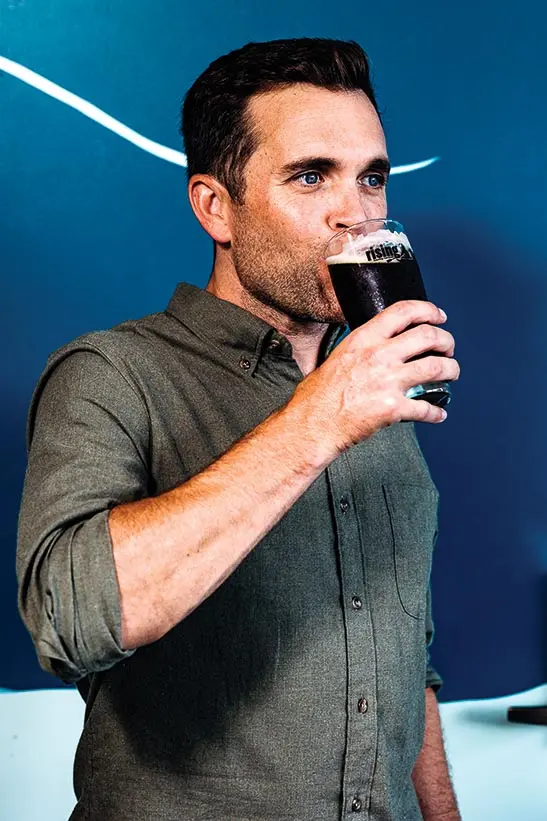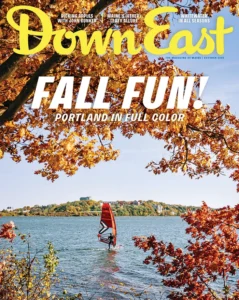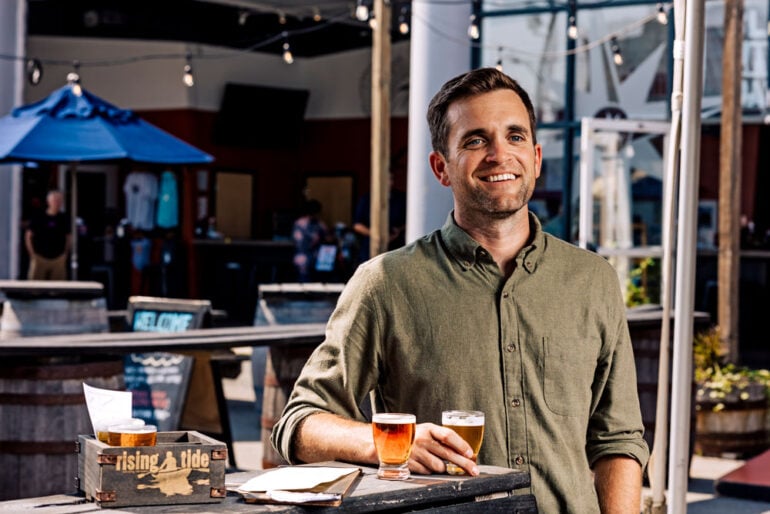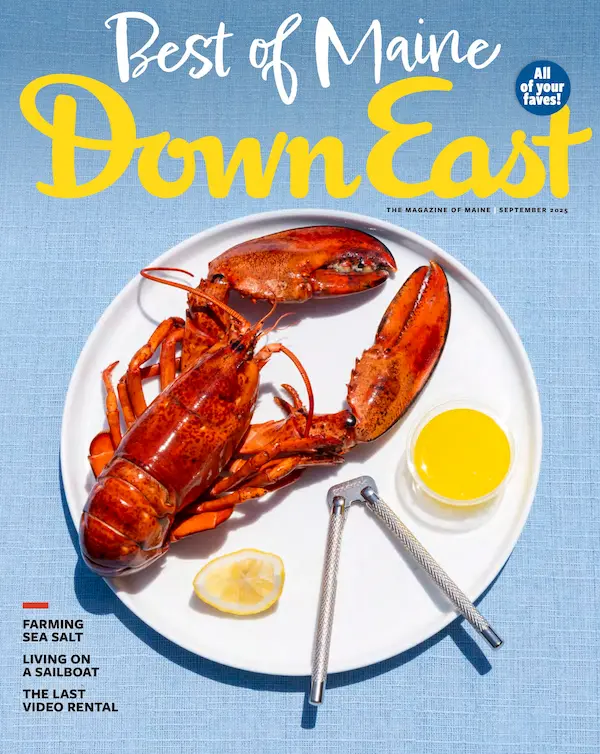By Joel Crabtree
Photos by Ryan David Brown
From our November 2023 issue
Before Sean Sullivan became executive director of the Maine Brewers’ Guild just over a decade ago, the position didn’t even exist. Owners and employees of the state’s several dozen breweries staffed the organization on a catch-as-catch-can, volunteer basis, collectively trying to raise the profile of Maine’s scrappy, emerging beer scene. Sullivan had gotten familiar with the industry as president of the Portland chapter of Greendrinks, a sort of social-networking club for sustainability-minded people who also happen to like beer, and he had come to believe that Maine craft beer was on the cusp of new heights. During his time at the guild, he oversaw a wide range of initiatives that aided the ascent. Among other things: festivals, the Maine Beer Trail map, lobbying efforts in Augusta, and Portland’s annual New England Brew Summit, a major event for industry types from across the region. This year, after having stayed with the guild all the way through the boom years, he decided it was time for something new — now, he’s pursuing a master’s degree in computer science. But before he was too absorbed in 1s and 0s, he reflected on his experience in barley and hops.
When did you first get interested in Maine beer?
Out of college, around 2008, we’d drink Riptide Red, from Casco Bay Brewing, which isn’t around anymore. The price point wasn’t bad, and it was something different. Then, I went to Novare Res beer bar, in Portland, which was pretty new still. Marshall Wharf was doing a tap takeover. They had an oyster stout, and I was like, “I’m gonna try that,” and it opened my eyes. I wanted to explore a lot more after that.
And the scene changed a whole lot in the years that followed.
There were something like 45 breweries when I started at the guild. When I left, that number was about 170. The fundamental change was legislation allowing for tasting rooms, then for greater self-distribution. Oxbow restricted their growth for a number of years, as did Bissell Brothers, because once they got to a certain production level, state law required them to sign on with a distributor. Changing those rules, especially in such a relationship-driven business and relationship-driven state, really made a difference.
Maine was ahead of the curve in relaxing some legal barriers. With other states following suit, is there any long-term risk that Maine’s reputation as a major beer destination could get watered down?

What most other states don’t have is such a robust and well-established hospitality industry. Put beer to the side, and Maine still has that Vacationland brand. Camden, Bangor, Portland, Bar Harbor, the north woods — there are all these pockets that interest different people. That will keep us punching above our weight. But we did get a head start at a critical time, and our beer reputation was cemented.
Is there still room for growth here?
I do think there’s room, but I don’t think it’s going to look like the growth of the past 10 years. It’s not going to come from five more breweries that want to get big on the backs of New England IPAs. Where the growth is going to come from is breweries that have built a strong community around them and can expand their operation to include food and a wider range of beverages. Where it’s going to come from, too, is niches like gluten-free or non-alcoholic. I could see one brewery focused on just beers below 5 percent ABV, one on making Japanese-style rice beers, one on beers with 100 percent Maine ingredients.
What was your favorite part of the job?
The absolute best part was going around and visiting the state’s nooks and crannies. I’m still so dumbfounded and grateful that people really believed Maine could be a powerhouse in this industry. State legislators and tourism officials certainly deserve credit, but it’s mostly the result of all the people who opened up breweries in small towns, plus the people who supported them and truly gave them a shot.




